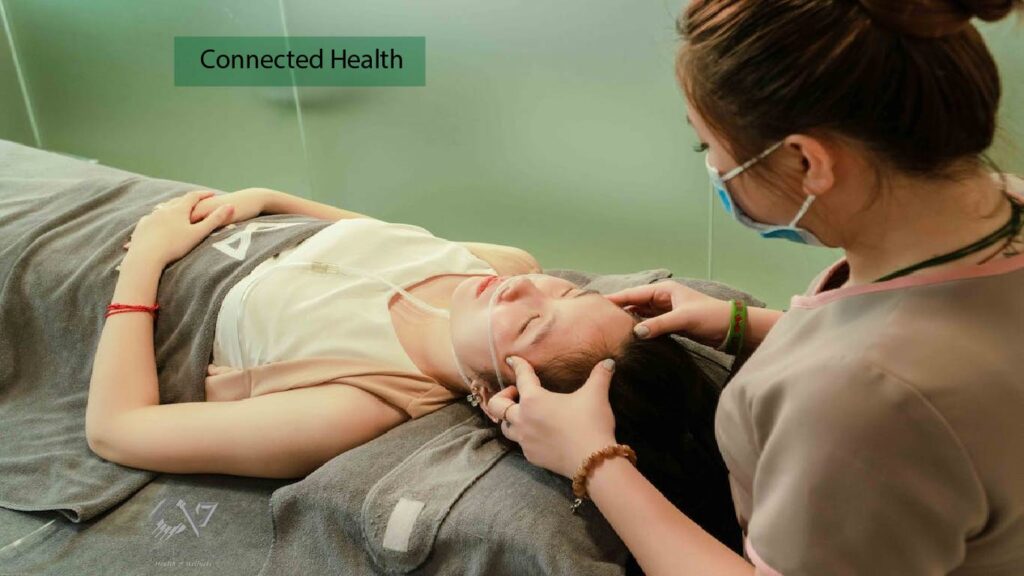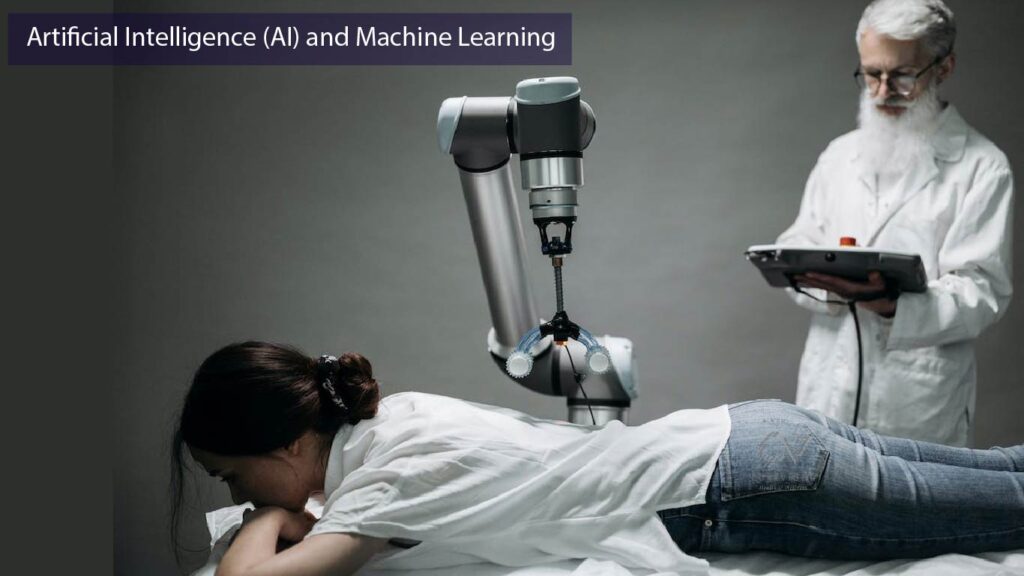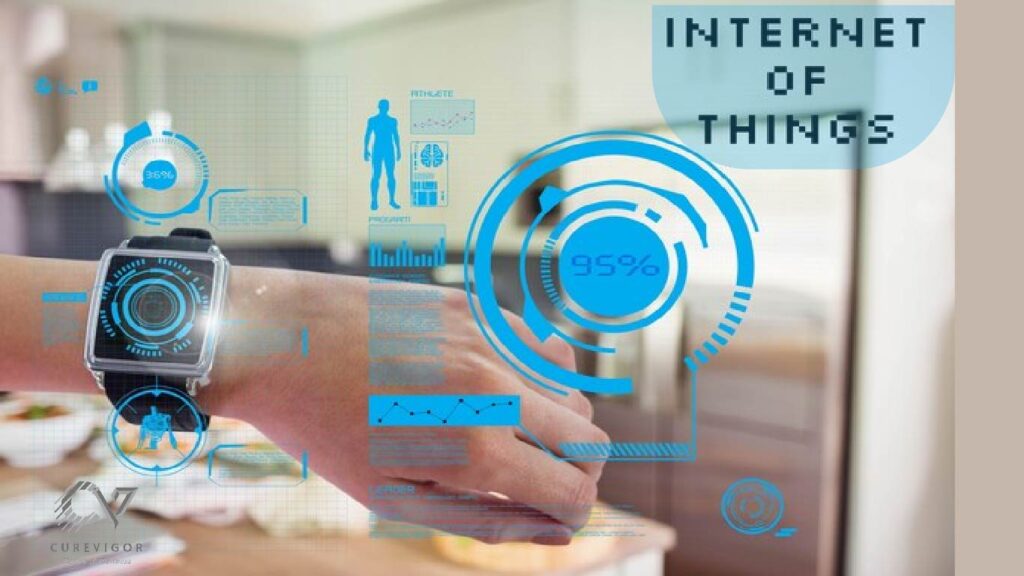Explore the transformative journey of healthcare through the HealthTech revolution. Discover how AI, big data, blockchain, and IoT transform healthcare for personalized medical experiences.
Contents
HealthTech Revolution: A Glimpse into the Future of Healthcare
Welcome to the future of healthcare, where technology is revolutionizing how you perceive and receive medical care. In this health-tech-driven era, the fusion of innovation and healthcare creates a paradigm shift, offering a more connected, intelligent, and personalized approach to well-being.
Health information technology (HIT) rapidly transforms the healthcare industry, promising even more dramatic changes in the future. These advancements can improve healthcare quality, efficiency, and accessibility for patients and providers alike.
In this blog post, we will explore some of the key trends shaping the future of HIT and discuss how they are poised to revolutionize the healthcare landscape.
Connected Health

Connected health, also known as telehealth, is on the rise. With the help of video conferencing, remote monitoring, and other digital tools, patients can receive care at home or other convenient locations.
Connected health offers several benefits, including improved access to care, reduced costs, and increased patient convenience. It is especially beneficial for those living in rural areas or with limited mobility.
In this era, your health is not limited to the four walls of a clinic. Connected health transcends boundaries, leveraging technology to monitor, manage, and enhance your well-being. Wearables and smart devices keep you in tune with your health metrics, providing real-time data to you and your healthcare providers. Your journey to well-being is now a continuous, data-driven dialogue.
Artificial Intelligence (AI) and Machine Learning

Healthcare is gaining new tools and applications thanks to AI and machine learning. With these technologies, one may better diagnose, treat, and care for patients by analyzing vast volumes of data to find patterns and trends.
Artificial intelligence (AI) has the potential to identify diseases like cancer early on by analyzing medical imagery. It can personalize medical treatments based on each patient’s genetic and biological makeup, leading to more effective treatments and better patient outcomes.
Imagine a healthcare system that understands you individually, predicting and preventing potential health issues. AI and machine learning analyze your medical data in real-time, providing personalized treatment plans. From diagnostic support to drug discovery, these technologies empower healthcare providers with tools to deliver more accurate, efficient, and tailored care.
Big Data and Analytics

The healthcare industry generates massive amounts of data, and big data analytics is becoming essential for making sense of it all. Data can monitor disease trends, enhance healthcare quality, and track health trends. Big data enables personalized medicine.
The power of data is transforming healthcare. Using big data analytics, healthcare professionals can gain valuable insights from vast amounts of data, resulting in better care decision-making. Your medical history, treatment outcomes, and population health trends are all part of a comprehensive analysis, ensuring a proactive and informed approach to your health.
Blockchain Technology

Blockchain technology is a secure and transparent way to store and share data. It can potentially revolutionize managing health information, improving patient privacy and security.
Blockchain technology has diverse applications in the healthcare sector, ranging from drug supply chain management to tracking and tracing systems for medical equipment.
Securing your health data is paramount, and blockchain technology emerges as a game-changer. It ensures the integrity and security of your medical records, providing a decentralized and tamper-proof system. With blockchain, you control who accesses your data, enhancing privacy and trust in the healthcare ecosystem.
The Internet of Things (IoT)

The IoT is a network of physical devices connected to the internet that can collect and share data. IoT devices like wearables and smart home technology can monitor patients remotely in healthcare.
Data can detect health problems early and help manage chronic conditions.
The interconnected web of devices is creating a seamless healthcare experience for you. IoT in healthcare means your pacemaker communicates with your smartphone, your pill dispenser knows your medication schedule, and your smart home devices adapt to your health needs. The IoT ecosystem is weaving convenience and efficiency into your healthcare journey.
Conclusion | HealthTech Revolution
The future of HIT is bright, and the possibilities for improving healthcare are endless. These emerging technologies have the potential to revolutionize the way we deliver care, improve patient outcomes, and make healthcare more accessible and affordable for everyone.
As these technologies continue to develop, healthcare providers, policymakers, and patients must stay informed and engaged in the conversation about their potential benefits and challenges. Let’s work together to improve healthcare with HIT.
The HealthTech revolution is not a distant dream; it’s unfolding before your eyes, putting you at the center of a healthcare transformation. Integrating connected health, AI, big data, blockchain, and IoT is sculpting a future where healthcare is not just reactive but predictive, not just generic but personalized, ensuring a healthier, more empowered you.
FAQs on the HealthTech Revolution
Q: How does connected health benefit me?
Connected health is the future of healthcare management. With real-time monitoring through smart devices, you can stay on top of your health data 24/7. Say goodbye to reactive healthcare and hello to proactive management. Take control of your health and fitness goals with connected health.
Q: How does blockchain enhance healthcare security?
Blockchain ensures the security and integrity of your health data by providing a tamper-proof and decentralized system, putting you in control of your information.
Q: How does IoT improve healthcare experiences?
IoT creates a connected ecosystem, allowing devices to communicate and adapt to your health needs, making healthcare more efficient, convenient, and personalized.
Q: What is the future of information technology in healthcare?
The future of information technology in healthcare is promising. Advancements in AI, machine learning, and data analytics will continue to revolutionize patient care. Expect increased integration of digital health records, telehealth services, and wearable devices, providing a more connected and patient-centric healthcare experience. Cybersecurity will also play a crucial role in safeguarding sensitive health information and ensuring a secure and reliable IT infrastructure for the healthcare industry.
Q: How will healthcare technology change in the next ten years?
Over the next decade, healthcare technology will undergo transformative changes. We anticipate more widespread adoption of telemedicine, enabling remote consultations and increasing access to healthcare services. AI and machine learning will become even more sophisticated, facilitating quicker and more accurate diagnostics. The proliferation of health apps and wearable devices will empower individuals to manage their health. Moreover, integrating blockchain technology will enhance data security and interoperability, fostering a more efficient and interconnected healthcare ecosystem.
Q: Is the health information technology profession growing?
The health information technology (HIT) profession is experiencing significant growth. As healthcare systems increasingly digitize their operations, there is a growing demand for professionals skilled in managing and optimizing health information systems. HIT specialists, including health informaticians and IT professionals in healthcare, play a vital role in ensuring the seamless functioning of electronic health records, data analytics, and other health-related technologies. Demand for digital healthcare professionals is rising as the industry transforms.
Q: What is the future of health information management?
Health information management (HIM) is crucial for the future of healthcare. HIM professionals ensure the accuracy, security, and accessibility of patient records. With more health data, HIM specialists implement information systems, utilize AI, and ensure compliance with regulations. The future of HIM is dependent on using technology to improve patient care and streamline healthcare delivery.
Read more articles on Health and Wellness.
You might like to read:
Health Risks Associated with Tattoos and How to Mitigate Them
Fitness Trackers and Smartwatches: Monitor Heart Rate, Activity Levels, and Sleep Quality
https://curevigor.com/electronic-tattoos-in-healthcare-unveiling-the-next-frontier-in-wearable-tech/










